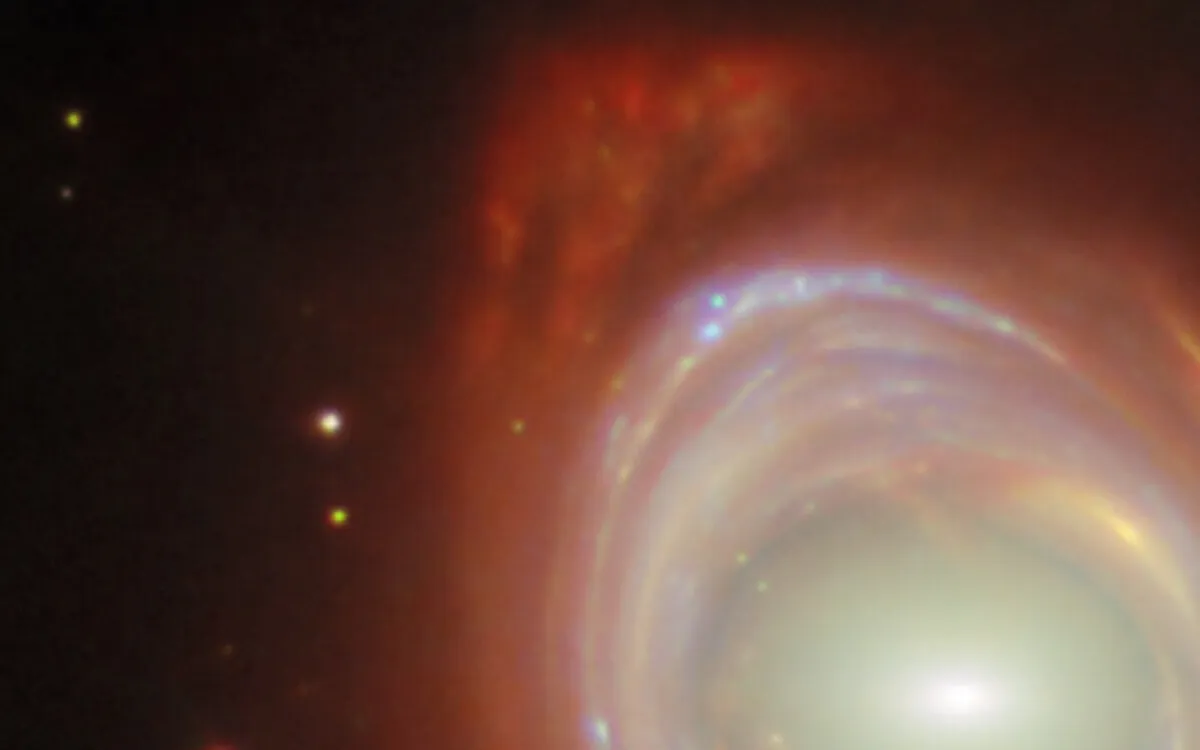
The latest NASA, ESA, and CSA collaboration has unveiled a breathtaking image showcasing a rare cosmic phenomenon known as an Einstein ring. At first glance, what appears to be a singular, oddly shaped galaxy is, in fact, a unique visual created by two galaxies that are separated by vast distances in the universe.
At the center of this mesmerizing image lies a closer foreground galaxy, while a more distant background galaxy appears to be encircled around it, forming a spectacular ring. This astonishing effect occurs when light from an extremely distant object is bent, or 'lensed,' around a massive intermediate object—also referred to as the 'lensing' object. The phenomenon is rooted in the principles of spacetime, which suggests that the presence of mass can warp the very fabric of the universe, causing light to follow curved paths.
While the bending of light due to gravitational forces is too subtle for us to observe on a smaller scale, the effects become dramatically evident when viewed on a grand astronomical scale. For instance, when the light emitted from one galaxy bends around another galaxy or a galaxy cluster, the result can create a stunning visual, such as the Einstein ring.
The Einstein ring depicted in this image exemplifies the beauty of cosmic alignment. When the lensed object and the lensing object align perfectly, they produce a distinctive ring shape that can be seen as a complete circle or a partial arc of light surrounding the lensing galaxy, depending on the accuracy of the alignment.
This cosmic arrangement provides an extraordinary opportunity for astronomers to study galaxies that are too faint or distant to be observed through conventional means. In the center of this Einstein ring is an elliptical galaxy characterized by its bright core and smooth, featureless appearance. This particular galaxy is part of a galaxy cluster named SMACSJ0028.2-7537.
The lensed galaxy, which appears to be wrapped around the elliptical galaxy, is identified as a spiral galaxy. Despite the distortion caused by its light traveling around the foreground galaxy, individual star clusters and gas structures within the spiral galaxy are distinctly visible.
This remarkable image was captured as part of the Strong Lensing and Cluster Evolution (SLICE) survey (program 5594), led by Guillaume Mahler at the University of Liège in Belgium. The SLICE survey comprises an international team of astronomers dedicated to tracing 8 billion years of galaxy cluster evolution by targeting 182 galaxy clusters using the James Webb Space Telescope's Near-Infrared Camera instrument.
Additionally, this captivating image incorporates data from two instruments of the NASA/ESA Hubble Space Telescope: the Wide Field Camera 3 and the Advanced Camera for Surveys. The collaboration between these two groundbreaking telescopes underscores the importance of multi-wavelength observations in enhancing our understanding of the universe.
The unveiling of this Einstein ring by the James Webb Space Telescope not only highlights the incredible capabilities of modern astronomy but also opens new avenues for research into the vast, mysterious cosmos. As we continue to explore these celestial wonders, the insights gained from such observations will undoubtedly deepen our understanding of the universe and its myriad phenomena.